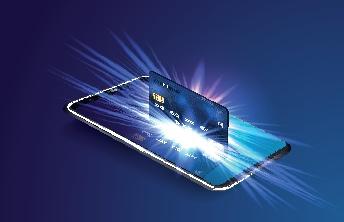A recent survey conducted by CNET revealed that around 48% of US adults have signed up for free trial subscription services and then forgotten to cancel them, leading to unnecessary expenses. To avoid this common mistake, one simple and effective solution is to use a virtual credit card. These virtual cards, which can be one-time use or easily locked or replaced, are ideal for signing up for free trials as they prevent unauthorized charges from going through if the user forgets to cancel the subscription.
In the world of credit card business, Goldman Sachs is in talks to transfer its General Motors credit card program to Barclays. The potential deal with Barclays would mark a significant move for Goldman Sachs as it retreats from consumer lending. While Barclays is the leading candidate to take over the credit card program, other contenders such as U.S. Bancorp and Bread Financial have dropped out of the race. Ultimately, the outcome is uncertain as another potential suitor could still emerge to take over the GM credit card program.
The Biden administration’s crackdown on late fees charged by banks to credit card users is set to take effect on May 14. This new rule places a cap on late fees at $8 per transaction, significantly lower than the current average of $32. While this is beneficial for consumers, it may have negative implications for retailers like Nordstrom, Macy’s, and Kohl’s, which rely heavily on credit card programs for a significant portion of their operating profits.
A recent study by PYMNTS Intelligence revealed that consumers are increasingly turning to credit unions and community banks for their credit card needs. With 24% of consumers expressing a preference for local options like credit unions or community banks to issue their primary credit cards, national banks are losing some of their dominance in the credit card space. This trend is particularly strong among high-spending revolvers, with credit unions being the top choice for issuing new cards.
Small and medium-sized businesses in the healthcare sector are increasingly opting for real-time payments over credit cards and checks for account-to-account transfers. Real-time payments have become the preferred method for 83% of SMB healthcare providers, with instant bank account-to-account payments and instant PayPal transactions leading the way. Healthcare providers affiliated with national or regional banks show a greater inclination to adopt real-time payment systems compared to those associated with local banks or credit unions.
Recent data from the Federal Reserve Bank of New York and the U.S. Census Bureau revealed that the average American household carries $7,951 in credit card debt. While this figure varies by generation, with Generation X and Baby Boomers having the highest average credit card debt, the overall trend shows that Americans are facing significant debt burdens. Millennials, Generation Z, and the Silent Generation also carry varying levels of credit card debt on average.













